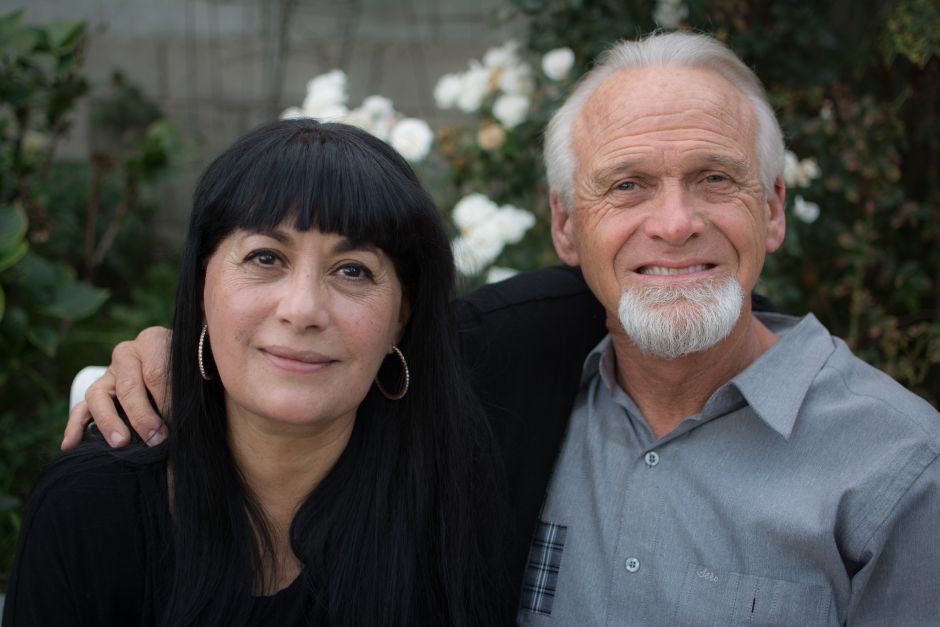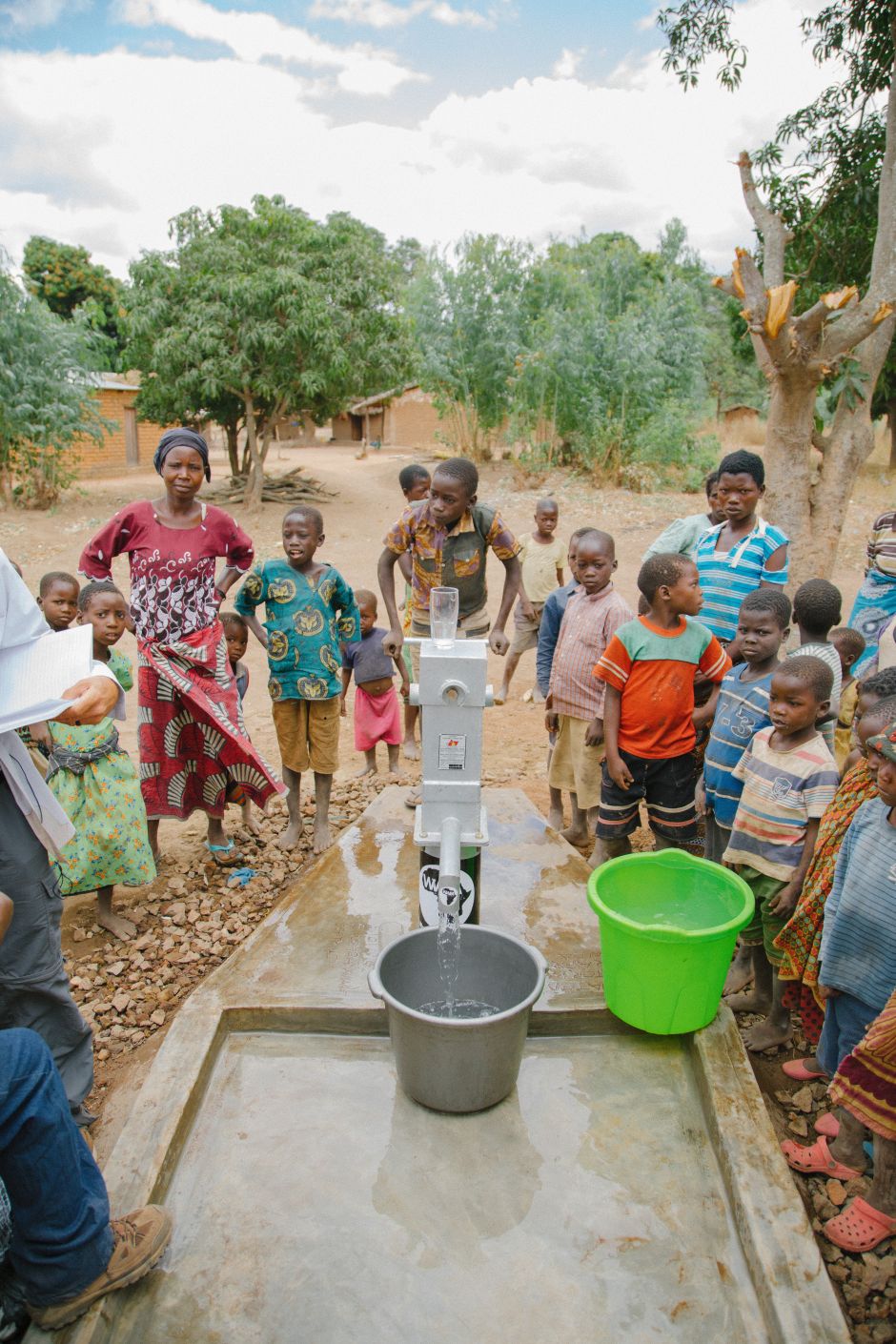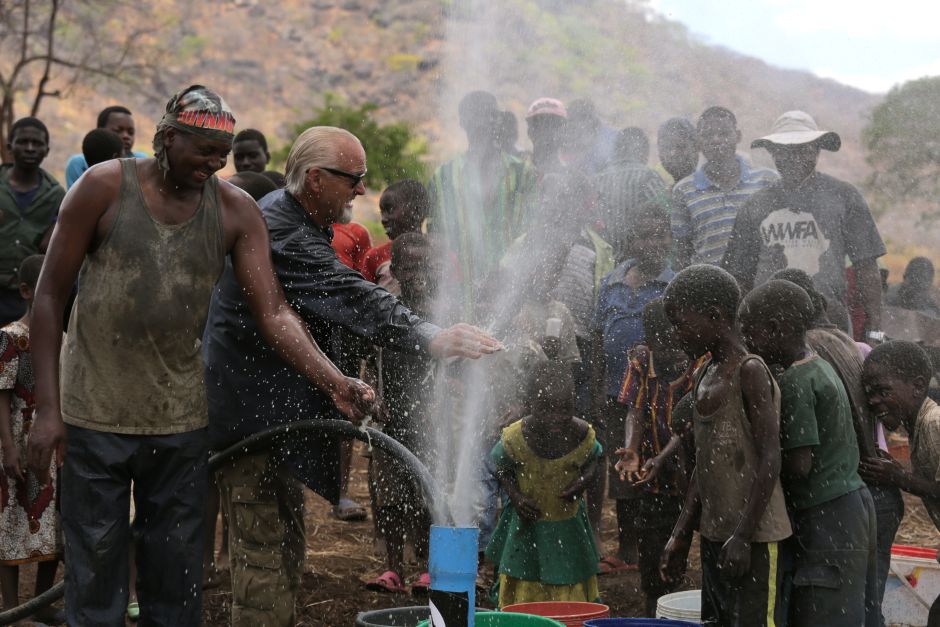The rain comes from the top down, but the Californians of the organization “WWFA” set out to make it rain from the bottom up, with drilled wells, in the rural towns of Malawi, Africa.
"Here in Los Angeles, we take it for granted that when you open the tap, water falls," Irma García, 62, co-founder of WWFA, told La Opinion.
"We waste it and we don't know where it comes from, but there are communities in Africa and other places in the world, where people suffer to get water," said the wife of Kurt Dahlin, founder.
Wells of Water for Africa (WWFA) was born in 1994 when Dahlin, now 68 years old, together with Eddie Braun, “double” artist of Hollywood protagonists, and two cameramen filmed a documentary about refugees in southern Africa, Malawi, border region with Mozambique.
In those years, the Malawi population was "at the top of the world poverty index."
On his return to Manhattan Beach, California – now WWFA headquarters – Dahlin told his wife that during the filming in arid Africa, he was shocked to see people walking several miles and making various trips, to go to contaminated pools to bring "a dirty water bucket for household and agricultural uses.
García, 62, was born in Salinas, California, and is the daughter of immigrant farmers from Morelia, Michoacán, therefore her empathy with the farmers of Malawi.

With donations
The couple thought that the solution would be to make wells, with donations from Californians, "on average it costs $ 8,000" each excavation and installation of crank for manual extraction.
But, due to the low economic income of the people in that region, "they simply cannot afford to do it," said the American with Mexican roots.
Thus they began to spread the word in the Hollywood art community and other donors to collect money to hire companies that make wells in Malawi, "so that the money stays in those communities."
"I am in charge of receiving the money, I do the accounting and keep track of the receipts on how we invest the money from the sponsors," said García.
One of the pioneers of the project, which today is dedicated to other philanthropic activities, is actor Charlie Sheen, who has credits in dozens of blockbuster films such as "Navy Seals", 1990; "Platoon", 1986 and "Red dawn", 1984.
Who continues as an active member of WWFA is the stunt specialist, Braun, who had as one of his box office films "Transformers: Dark of the moon", (2011).
Good quality water
To glamorous people with mansions where fresh, clean and drinkable water falls on opening the valve tap, Garcia explains that in Africa “there are children who cannot go to school, because they spend all day going to bring the vital liquid for the house and the crops ”.
The Mexican American manages donations among celebrities, businessmen and even leaders in the media, such as "National Geographic", which "sponsored" a well in the Mwedini canton in 2016.
The Mauí community thanked “Nat-Geo” in two posters that said in English: “Water is life. Thank you National Geographic family. "
WWFA is an entity with legal status since 2007.
Dahlin estimates that around 300,000 people in southern Malawi today have "good quality" water just steps from their homes.

Product of the construction of 230 collective wells that supply water for 5 nearby hamlets, for household chores and small agricultural productions.
H2O extraction holes are drilled with industrial bits and some are more than 160 feet deep.
And they are deep pits, because according to Malawi government sanitation guidelines, the crystalline aquifers without "pesticides" or other contaminants are far below the surface.
Furthermore, water in underground reservoirs at that depth, despite droughts, "always produces water," Dahlin said.
Celebration by the water
The WWFA team is 30 members, including seven Latinos, and is distributed among Los Angeles County collaborators and a "committee" from the same rural communities in Malawi, who advise on where to drill the next well.
Dahlin, who travels to Africa to verify "the investment of donor money," said that he "loves to go in the days leading up to the wells opening."
People gather around the drilling machinery and when the trepanner breaks the bubble of the aquifer, the water jumps under high pressure, like rain coming from below, and everyone runs to get wet with the first waters.
"The children laugh, the women dance and even begin to invent songs with rhythms from their region," the founder described laughing.
Dahlin created the water well production organization after he retired from his profession as a helicopter manufacturing engineer for the McDonnell Douglas company, "when he was in Culver City."
"By building wells for our brothers in Malawi, we have learned that the people in these communities are healthy today," revealed Dahlin.
"Children go to school, agricultural production increases, families have more income, everyone looks happier and women today even play sports," she concluded.
World Water Day was instituted in 1992 by the United Nations (UN) to be celebrated every March 22.
The objective is to raise awareness about "the relevance of this essential liquid" and remember that today there are around "2.2 billion people living without access to drinking water" in the world.
For more information on the need, projects and how to make donations to Water Wells for Africa, visit the portal waterwellsforafrica.org/








